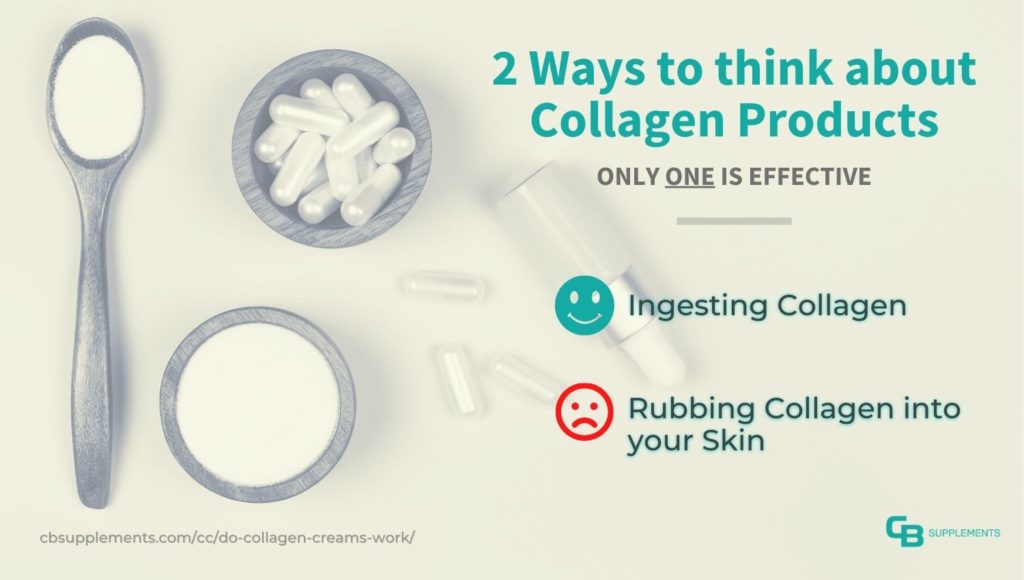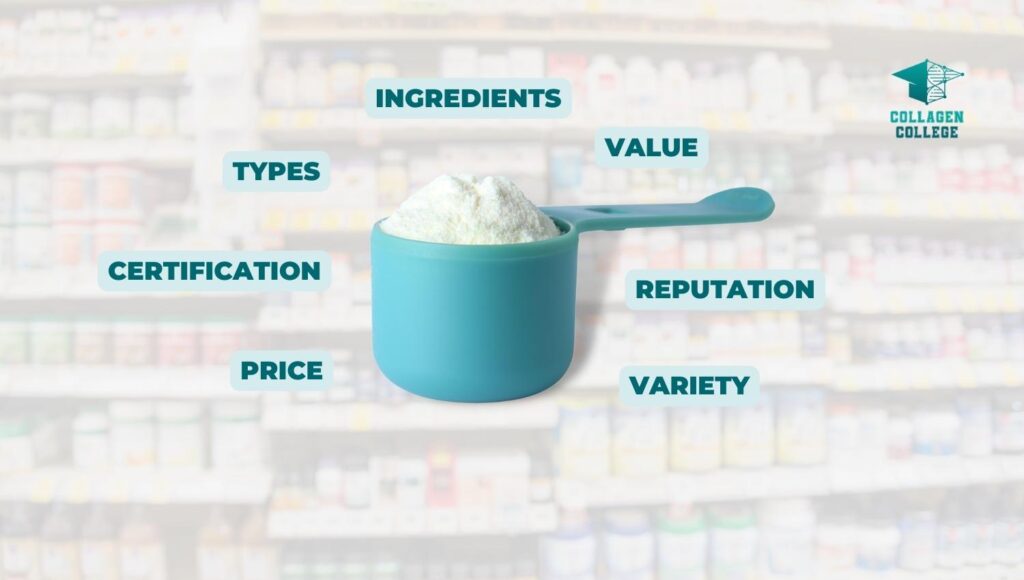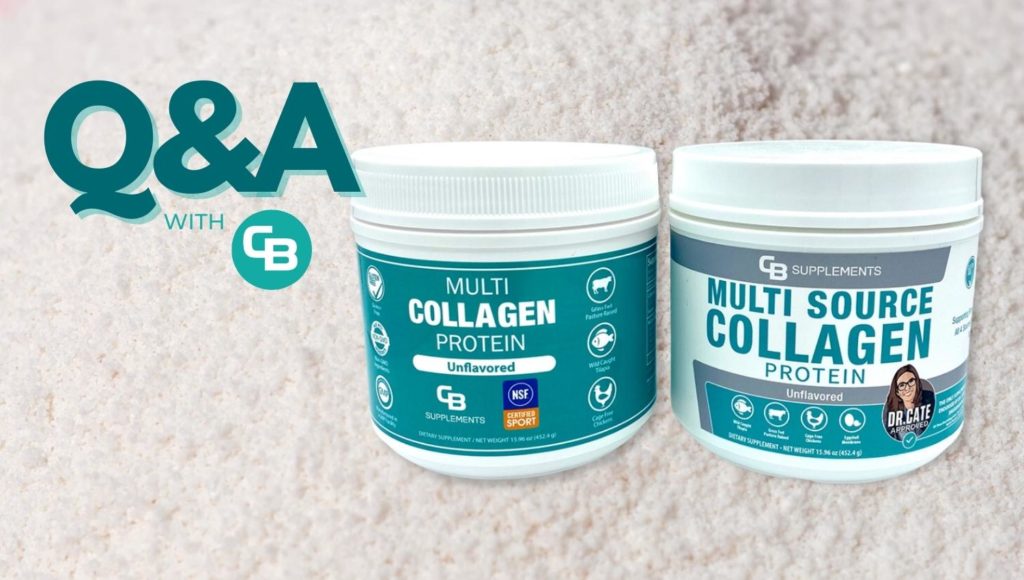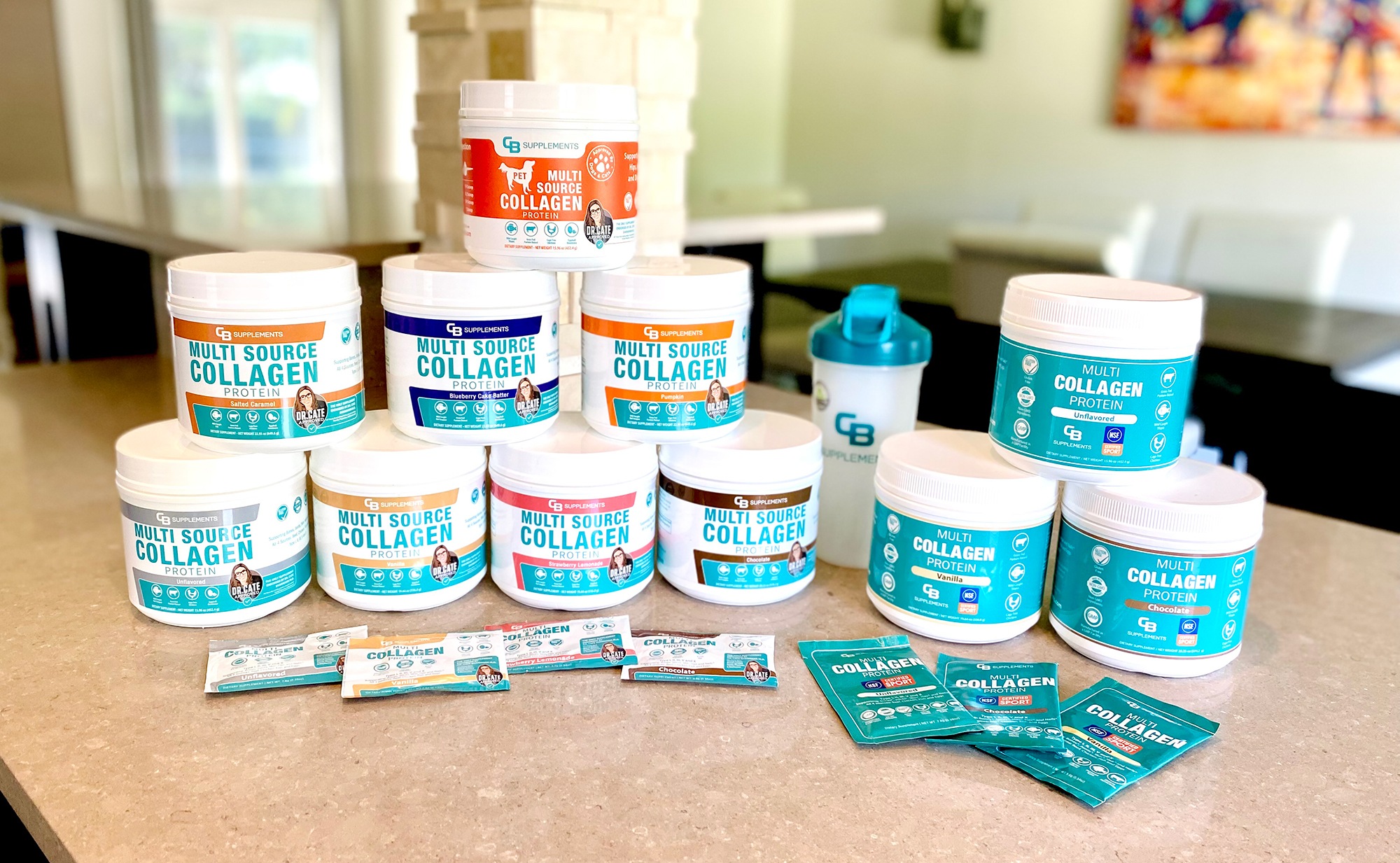Do collagen creams work?
A family physician (Dr. Cate, M.D.) and a dermatologist (Dr. Matthew Knight, M.D.), say, “No”.
However, as we do with all collagen-related topics, we’ll explore this further.
2 Ways to think about Collagen Products
It’s understandable if you group all collagen products in the same category. But, be careful here cause they’re not all the same. To simplify this, there are two ways to see collagen products:
- Ingesting Collagen. Your body can then use that collagen to go fix connective tissue of all kinds (its superpower!) In other words, effective.
- Rubbing Collagen into your skin. Purely cosmetic. In other words, NOT effective.
The benefits of collagen, in particular improving hair/skin/nails, are no doubt compelling. That long list of benefits continues to fuel a surge in consumer spending.
The global collagen market is set to reach 7 billion by 2025. Walk down the supplement aisle of your local grocery store and you’ll see collagen products everywhere. Shop at your favorite cosmetic store and you’ll see collagen peptides as an ingredient on numerous moisturizers and creams.
Collagen is proven to be great for your skin. But, that’s not the whole story.
Collagen Supplements are Food
Let’s focus on the ingesting of collagen orally, cause that’s our focus with our multi collagen products. Though we’re a supplement company, we focus solely on just collagen because we believe in it that much.
Collagen supplements are made from animals, including skin or hide, bones, cartilage, and connective tissues. It’s food. We just have to call it a “Dietary Supplement” because the FDA requires it by definition. The best way to take collagen (e.g. powder, pills, bars, drinks, etc.) depends on your preference, but we’re partial to powder.
Make no mistake about it, it’s food and works well with other foods — see our 50+ collagen recipes.
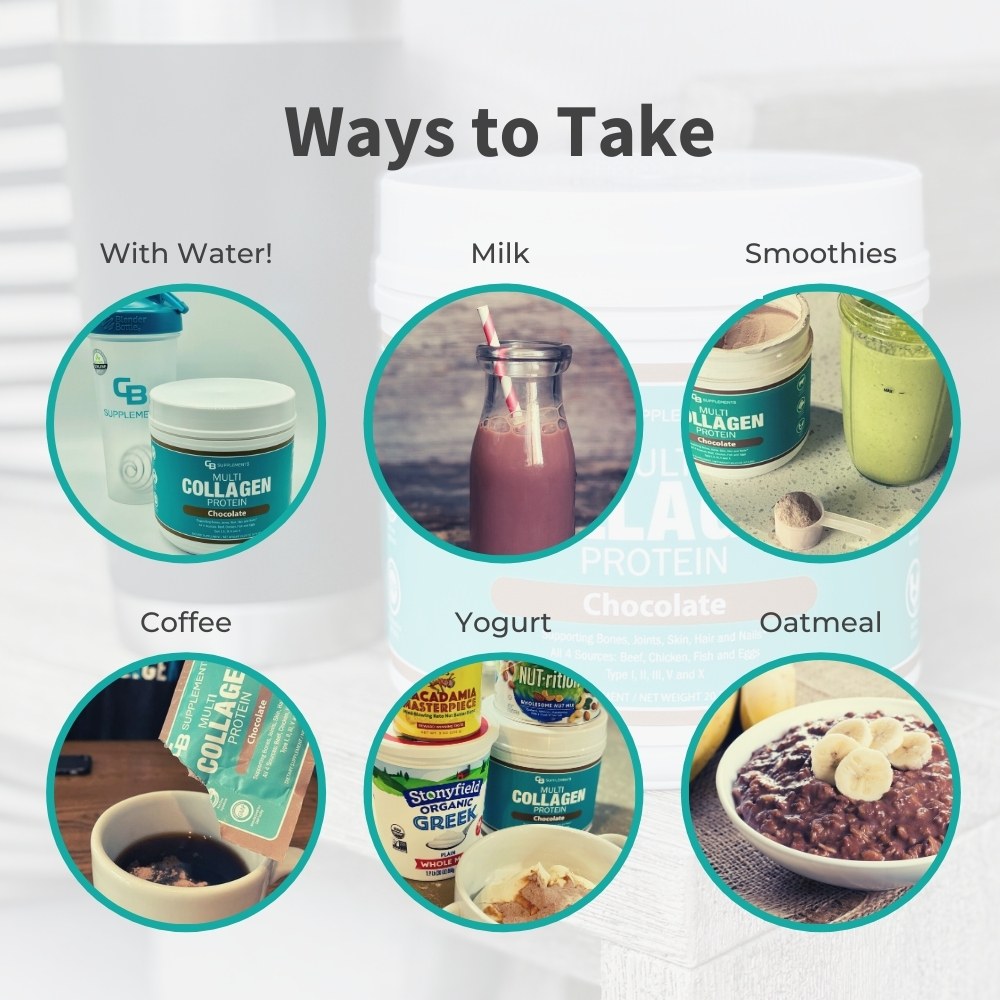
What do you do with food? You eat or drink it!
By consuming collagen orally you increase your collagen. Your body can then use it however it wants to repair connective issue. This is the superpower of collagen: connective tissue building.
Bioactive collagen peptides and amino acids unique to collagen have been shown to specifically rev up the collagen-making genes in specialized cells in our skin, ligaments, tendons, etc., called fibroblasts.Dr. Cate, M.D.
What are Collagen Creams? (hint: they’re NOT food)
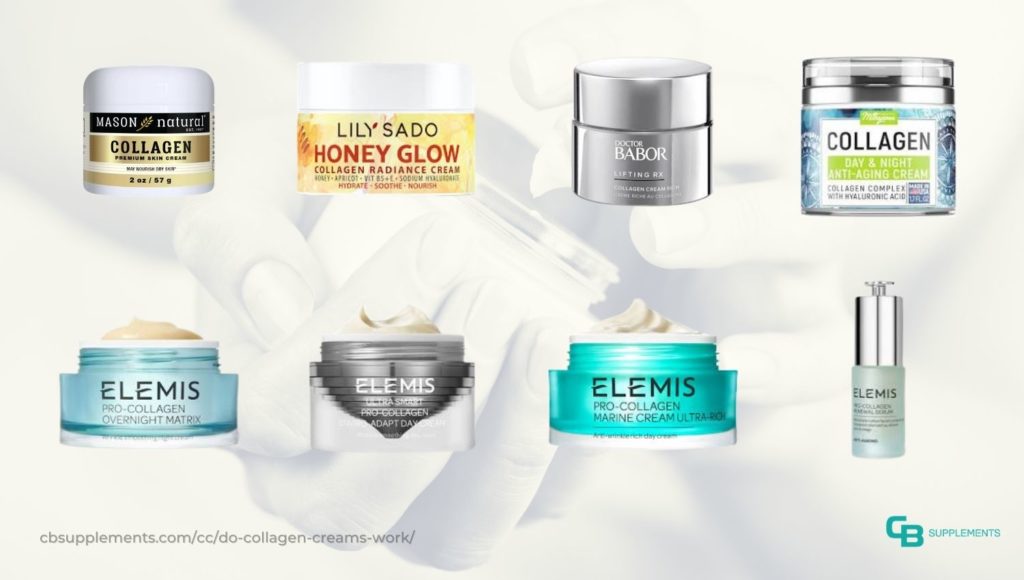
Collagen creams are exactly what you think they are. Moisturizers that contain hydrolyzed collagen, collagen peptides, or collagen amino acids. Creams infused with collagen, basically.
They are applied topically on your skin like any other moisturizer. Collagen creams can cost anywhere from $25 to $150 for a 1.7 oz to 2 oz container.
What are the Benefits of Collagen Creams?
There’s basically little to zero research done to make any solid claims around the benefits of collagen creams. But, the marketing around collagen creams continue to promise things like:
- elasticity
- reduce visible wrinkles
- increase blood flow to the skin
- prevents sagging
- plump, youthful look
Let’s talk more about the science behind collagen cream’s efficacy with dermatologist, Dr. Matthew Knight.
Do Collagen Creams Work? A Dermatologist answers.
Here’s the deal people.
Rubbing a collagen cream on your skin doesn’t really do anything, it will wash off when you finally decide to shower that day (or week, hey, no judging). Dr. Knight, M.D. from Knight Dermatology in Orlando, Florida — a nationally recognized speaker and author and board-certified dermatologist specializing in skin cancer, laser surgery, and cosmetic dermatology — believes collagen creams are just hype.
Your skin’s primary job is to keep stuff out — you can’t rub collagen on your skin to increase your collagen. You need to take it by mouth.Dr. Matthew Knight, M.D.
Watch him discuss the uselessness of collagen creams & moisturizers (video will automatically start at 1:12):
Here’s a quick review of Dr. Knight’s thoughts on collagen creams:
- Skincare creams/moisturizers with collagen is hype
- Collagen creams will NOT add to your body’s collagen makeup
- Collagen creams will NOT boost the production or synthesis of collagen in your body
- You need to take collagen by mouth & ingest it (aka eat or drink it!)
Believing that the collagen in your cream will actually help with elasticity, hydration, and overall skin health reminds me of that scene in the Matrix where Cypher is eating steak with Agent Smith.
You know, I know this steak doesn’t exist. I know that when I put it in my mouth, the Matrix is telling my brain that it is juicy and delicious. After nine years, you know what I realize? Ignorance is bliss.Cypher
We all need more Collagen. Topical Collagen Creams are not the Answer.
You want better skin health? More elasticity? Hydration? Fewer wrinkles? Don’t we all.
The solution isn’t topical creams that wash away.
It’s about getting more collagen in your daily nutrition. That’s why we always suggest getting your nutrition from food FIRST, then supplement. You don’t need a collagen supplement if you’re eating these foods that contain collagen.
As Dr. Knight explained in the video above, you need to take collagen by mouth for your body to utilize it. Creams infused with collagen may give you the sense that your skin is healthier and shinier, but that $150 container of hype simply washes right down the drain when you shower. Sounds like a really expensive habit with no long-term upside to me, but ignorance can certainly be bliss.
If you’re serious about better skin health, try spending under $50 on a container of our multi collagen (the chocolate collagen is awesome and delicious) and give your body a real chance to improve its skin.



